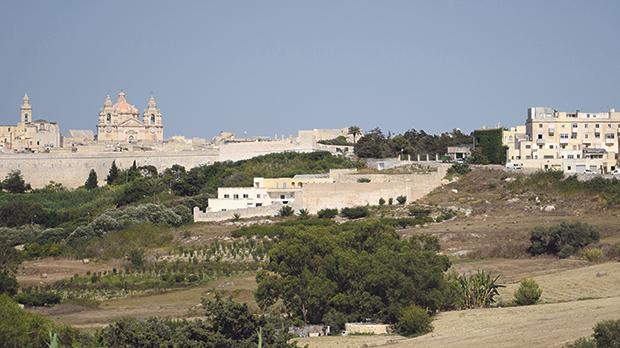More than 1,100 people have objected to plans to build a new promenade overlooking Ġnien Ħira valley close to the Roman Villa in Rabat.
The Transport Ministry proposal includes a belvedere, street furniture and parking spaces along a newly-widened Triq l-Għexierem and Triq it-Tabija, taking up areas of land outside development zones on the valley side.
Objectors who submitted representations to the Planning Authority, many of them following a campaign by Moviment Graffitti, said the project would destroy the Għexierem valley, part of one of two main valley systems on the island.
“Valley systems are an integral part of our landscape, agriculture, ecology, soil processes and hydrology,” the mass objection read.
“They are continuously threatened by fragmentation and degradation such as this project. Such a development will further add pressure on valley systems and in fact, goes against a number of national strategic documents that aim to safeguard and improve the ecological, hydrological and agricultural status of valleys.”
Objectors argued that the development would threaten rare plant species and damage active agricultural land which still features freshwater springs, fruit trees, orchards and vineyards, as well as one of the largest fig trees in Malta.
“Various studies have continuously shown that widening the road network does not alleviate the traffic problem that Malta is facing,” objectors wrote.
“Transport Malta needs to prioritise people and alternative modes of transport rather than continue to prioritise individual car users as these road widening projects across Malta are doing.”
In a statement, the leftist think-thank Żminijetna called for the project to be revised and limited to a two-metre walkway shared by cyclists and pedestrians
“The idea to enlarge the road to include a belvedere and parking spaces will result in a massive destruction of the flora and fauna of that area, that include the fool’s watercress, the greater chickweed, the blue speedweel, the grass leaved pepperworth and the creeping cinquefoil, which is considered as an important pollinator,” the group said.
The Environment and Resources Authority has also raised concerns about the project, which it said would have a “significant adverse impact on the site surroundings”.
The ERA pointed to the visual impact of the high embankment walls which will be built overlooking the valley, the need for construction vehicles to manoeuvre on underlying undeveloped land, the considerable ODZ land take-up and the eventual clearing of various fresh water flora and other important species.




